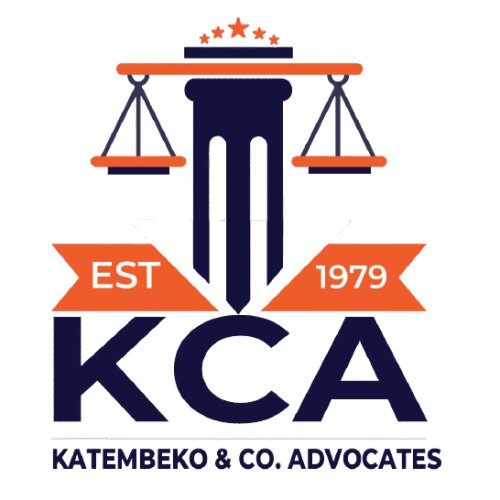Best Biotechnology Lawyers in Uganda
Share your needs with us, get contacted by law firms.
Free. Takes 2 min.
Or refine your search by selecting a city:
List of the best lawyers in Uganda
About Biotechnology Law in Uganda
Biotechnology in Uganda is an emerging field that harnesses biological systems, organisms, and processes to develop products and technologies that improve quality of life. The sector is vital for advancements in agriculture, medicine, and environmental management. Uganda, being an agriculturally inclined economy, emphasizes biotechnology as a catalyst for agricultural modernization and economic growth. The laws governing biotechnology in Uganda aim to regulate research, development, and deployment of biotechnological products and processes, ensuring safety and compliance with international standards.
Why You May Need a Lawyer
Individuals and organizations engaged in biotechnology may face various legal challenges that require professional guidance. Common situations where legal help may be needed include:
- Compliance with national and international biotechnology regulations.
- Intellectual property rights protection for biotechnological inventions.
- Negotiating and drafting contracts related to technology transfer, partnerships, and funding.
- Resolving disputes arising from biotechnological collaborations or patent infringements.
- Understanding the ethical and safety implications of biotechnological research and applications.
- Navigating regulatory approvals for new biotechnological products.
Local Laws Overview
The regulatory framework for biotechnology in Uganda is mainly outlined in the National Biotechnology and Biosafety Policy. This policy seeks to promote the safe application of biotechnology for sustainable development. Key legal aspects include:
- Biosafety Regulations: Implemented to ensure that biotechnology activities do not harm human health or the environment. This involves risk assessments and conformity to safety standards.
- Intellectual Property Rights: Protects innovations and encourages investment in biotechnology research by granting patents and related rights.
- Regulatory Agencies: The Uganda National Council for Science and Technology (UNCST) plays a significant role in overseeing biotechnology activities and applications.
- Ethical Guidelines: Addresses the ethical considerations of genetic modification and other biotechnology practices, including informed consent and public engagement.
Frequently Asked Questions
What is the role of UNCST in biotechnology?
The Uganda National Council for Science and Technology (UNCST) oversees the implementation of biotechnology activities and ensures compliance with biosafety standards.
Are genetically modified organisms (GMOs) legal in Uganda?
Yes, GMOs are legal but regulated in Uganda. They must undergo risk assessment and obtain approval from the relevant authorities before release.
How can I protect my biotech invention in Uganda?
You can apply for a patent through the Uganda Registration Services Bureau (URSB) to secure intellectual property rights for your invention.
What ethical considerations should I be aware of in Ugandan biotechnology?
Ethical considerations include informed consent, potential environmental impact, and respecting traditional knowledge and practices.
How do I get approval for a new biotech product?
Approvals involve submitting your product for risk assessment and obtaining clearance from regulatory bodies like UNCST.
Can foreign biotechnology firms operate in Uganda?
Yes, foreign biotechnology firms can operate in Uganda but must adhere to local laws and regulations.
What type of biotechnology is most common in Uganda?
Agricultural biotechnology, particularly in crop improvement and pest resistance, is the most common in Uganda.
What is the Uganda Biosafety Act?
The Biosafety Act is legislation aimed at ensuring the safe use of modern biotechnology, protecting biodiversity, and preventing environmental degradation.
How can I stay updated on biotechnology regulations?
You can stay informed by regularly consulting publications from UNCST and attending relevant workshops and conferences.
Where can I find professional legal advice on biotechnology?
Professional legal advice can be sought from law firms specializing in technology and intellectual property law in Uganda.
Additional Resources
For further information and assistance, consider reaching out to these organizations:
- Uganda National Council for Science and Technology (UNCST): Offers guidance and updates on biotechnology policies and regulations.
- Uganda Registration Services Bureau (URSB): Handles patent applications and provides resources on intellectual property rights.
- National Agricultural Research Organization (NARO): Involved in biotechnological research and development in agriculture.
- Uganda Biosciences Information Center (UBIC): Offers resources and information on biosciences and biotechnology.
Next Steps
If you need legal assistance in biotechnology, consider the following steps:
- Research: Gather specific details about your legal issue related to biotechnology.
- Consultation: Engage a lawyer who specializes in biotechnology to gain insights and advice.
- Documentation: Prepare all necessary documents and evidence related to your case or query.
- Professional Help: If needed, hire a legal firm that has expertise in biotechnology law to assist you in navigating complex legal landscapes.
Lawzana helps you find the best lawyers and law firms in Uganda through a curated and pre-screened list of qualified legal professionals. Our platform offers rankings and detailed profiles of attorneys and law firms, allowing you to compare based on practice areas, including Biotechnology, experience, and client feedback.
Each profile includes a description of the firm's areas of practice, client reviews, team members and partners, year of establishment, spoken languages, office locations, contact information, social media presence, and any published articles or resources. Most firms on our platform speak English and are experienced in both local and international legal matters.
Get a quote from top-rated law firms in Uganda — quickly, securely, and without unnecessary hassle.
Disclaimer:
The information provided on this page is for general informational purposes only and does not constitute legal advice. While we strive to ensure the accuracy and relevance of the content, legal information may change over time, and interpretations of the law can vary. You should always consult with a qualified legal professional for advice specific to your situation.
We disclaim all liability for actions taken or not taken based on the content of this page. If you believe any information is incorrect or outdated, please contact us, and we will review and update it where appropriate.
Browse biotechnology law firms by city in Uganda
Refine your search by selecting a city.

















